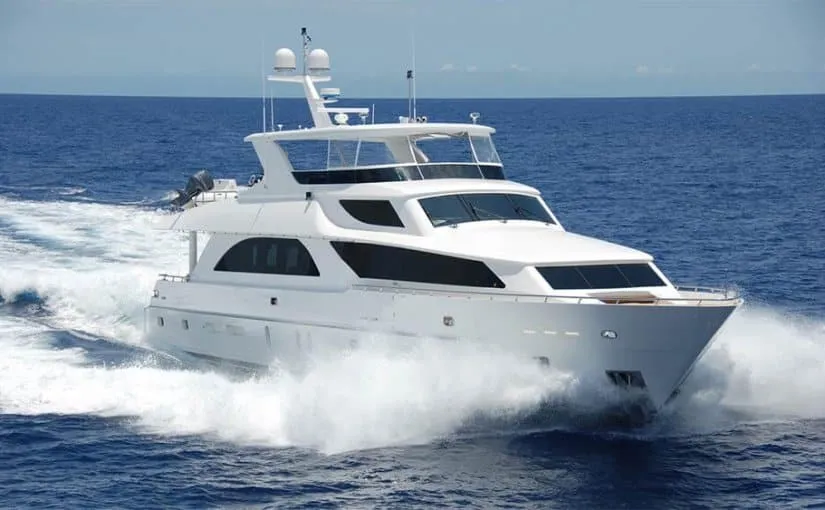What Does Boat Insurance Not Cover?

What Does Boat Insurance Not Cover? When it comes to boat ownership, insurance is a crucial aspect of ensuring both your investment and peace of mind. Boat insurance protects against various risks, including accidents, theft, and damage. However, it’s equally important to understand what boat insurance does not cover. We will explore the intricacies of boat insurance exclusions, helping you make informed decisions about your coverage and avoid unpleasant surprises when mishaps occur.
Understanding Boat Insurance

Before we delve into the details of what boat insurance doesn’t cover, let’s establish a firm grasp of the basics. Standard boat insurance policies typically offer protection against common risks, such as accidents, theft, and vandalism. These policies can vary, but they usually cover the following:
1. Physical Damage
Boat insurance usually covers damage to your boat, including the hull, sails, machinery, and equipment. This coverage extends to damages caused by accidents, storms, fires, or theft.
2. Liability Coverage
Liability coverage safeguards you in case you’re responsible for damaging someone else’s property or injuring another person with your boat.
3. Medical Payments
This part of your policy covers medical expenses for injuries to you and your passengers.
4. Uninsured Boater Coverage
It protects you if you’re involved in an accident with an uninsured boater who is at fault.
While these are the general areas that boat insurance covers, there are several exclusions and limitations to be aware of.
What Does Boat Insurance Not Cover?

1. Normal Wear and Tear
Just like any other vehicle or property, boats age over time. Boat insurance does not cover the natural wear and tear that occurs with regular use. It is expected that owners will perform regular maintenance and upkeep to prevent this kind of damage.
2. Damage from Lack of Maintenance
Neglecting your boat’s maintenance can lead to damage. Insurance doesn’t typically cover repairs resulting from inadequate care. Owners are expected to perform regular upkeep to prevent such issues.
3. Consequential Damage
A common misconception is that boat insurance covers all damages resulting from a covered event. However, it often doesn’t extend to secondary damage. For example, if your boat collides with an object and damages the engine, the insurance may not cover the engine repair costs.
4. High-Performance Boats
Standard boat insurance policies may not be suitable for high-performance boats, such as racing boats. These vessels come with unique risks, and you may require specialized coverage tailored to their specific needs.
5. Commercial Use
Boat insurance policies are typically designed for personal or recreational use. Suppose you use your boat for commercial purposes, like charters or rentals. Your standard policy may not provide the necessary coverage. In such cases, you’ll need commercial marine insurance.
6. Environmental Damage
Damage caused by environmental factors, like mold, mildew, and rot, is usually not covered by boat insurance. Proper storage, moisture control, and preventive measures are crucial to prevent these issues.
7. Petty Theft
While boat insurance typically covers theft, it may not cover petty theft, like fishing gear or personal belongings. You may need to purchase additional coverage for these items.
8. Racing or Speed Contests
If you participate in boat races or speed contests, your standard boat insurance policy may not cover any damages that occur during such events.
9. Personal Property in Excess
While boat insurance can cover personal belongings and electronics, there is usually a limit to how much it will cover. If your personal property exceeds this limit, you may need additional coverage.
10. War or Nuclear Incidents
Most boat insurance policies exclude coverage for damages resulting from war, nuclear accidents, or terrorism.
FAQs

Q: What should I do if my boat’s engine fails due to wear and tear?
If your boat’s engine fails due to normal wear and tear, you’ll need to cover the repair or replacement costs yourself. Routine maintenance can help prevent such issues.
Q: Can I get coverage for high-performance boats?
Yes, you can obtain coverage for high-performance boats, but it often requires a specialized insurance policy tailored to the unique risks associated with these vessels.
Q: Is my boat covered if I use it for a commercial fishing venture?
Most standard boat insurance policies do not cover commercial use. If you intend to use your boat for commercial purposes, consider a commercial marine insurance policy.
Q: How can I prevent environmental damage to my boat?
To prevent environmental damage, store your boat properly in a dry and ventilated area, use moisture-absorbing products, and take steps to ensure it remains well-ventilated when not in use.
Q: Does boat insurance cover the contents of my boat, such as electronics and personal belongings?
Yacht insurance can cover personal belongings and electronics, but you may need to add additional coverage, such as personal property insurance, to ensure comprehensive protection.
Q: What should I do if my boat gets damaged due to lack of maintenance?
If your boat sustains damage due to inadequate maintenance, you’ll be responsible for covering the repair costs. Regular maintenance is crucial to prevent such issues.
Q: How can I protect my boat during boat races or speed contests?
If you intend to participate in boat races or speed contests, you should consider purchasing a separate policy or rider to cover any damages that may occur during such events.
Conclusion
Understanding the exclusions and limitations of boat insurance is crucial for responsible boat ownership. By being aware of what boat insurance does not cover, you can make informed choices when selecting your insurance policy and take the necessary steps to mitigate risks that fall outside your coverage. It’s essential to consult with your insurance provider and thoroughly review your policy to ensure it aligns with your specific needs and expectations.
Yacht Insurance is your safeguard against unexpected events, but knowing its limitations ensures you’re prepared for all possibilities. Make sure to read your policy carefully, ask questions, and, if necessary, supplement your coverage to ensure that your boat remains protected in all situations.
